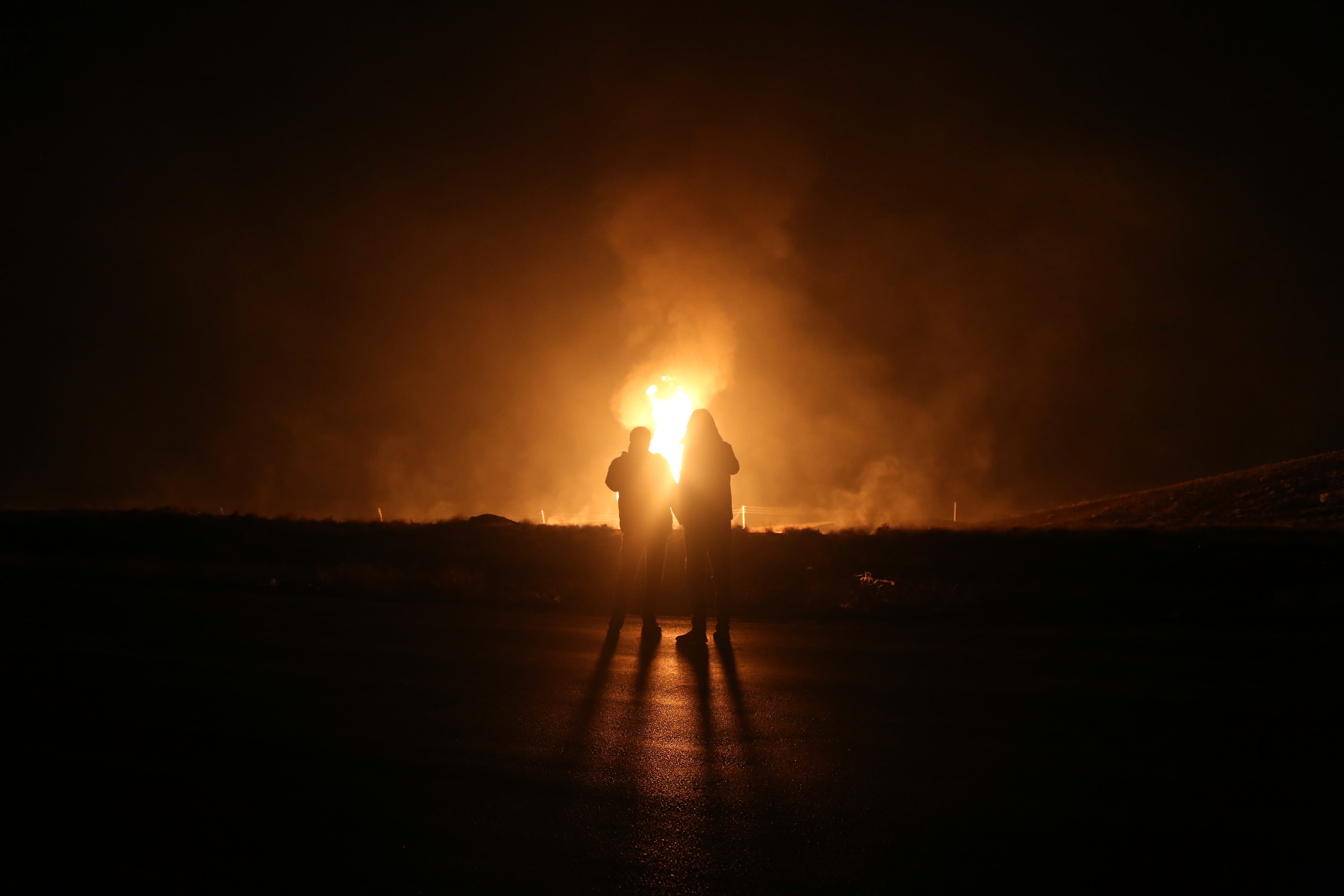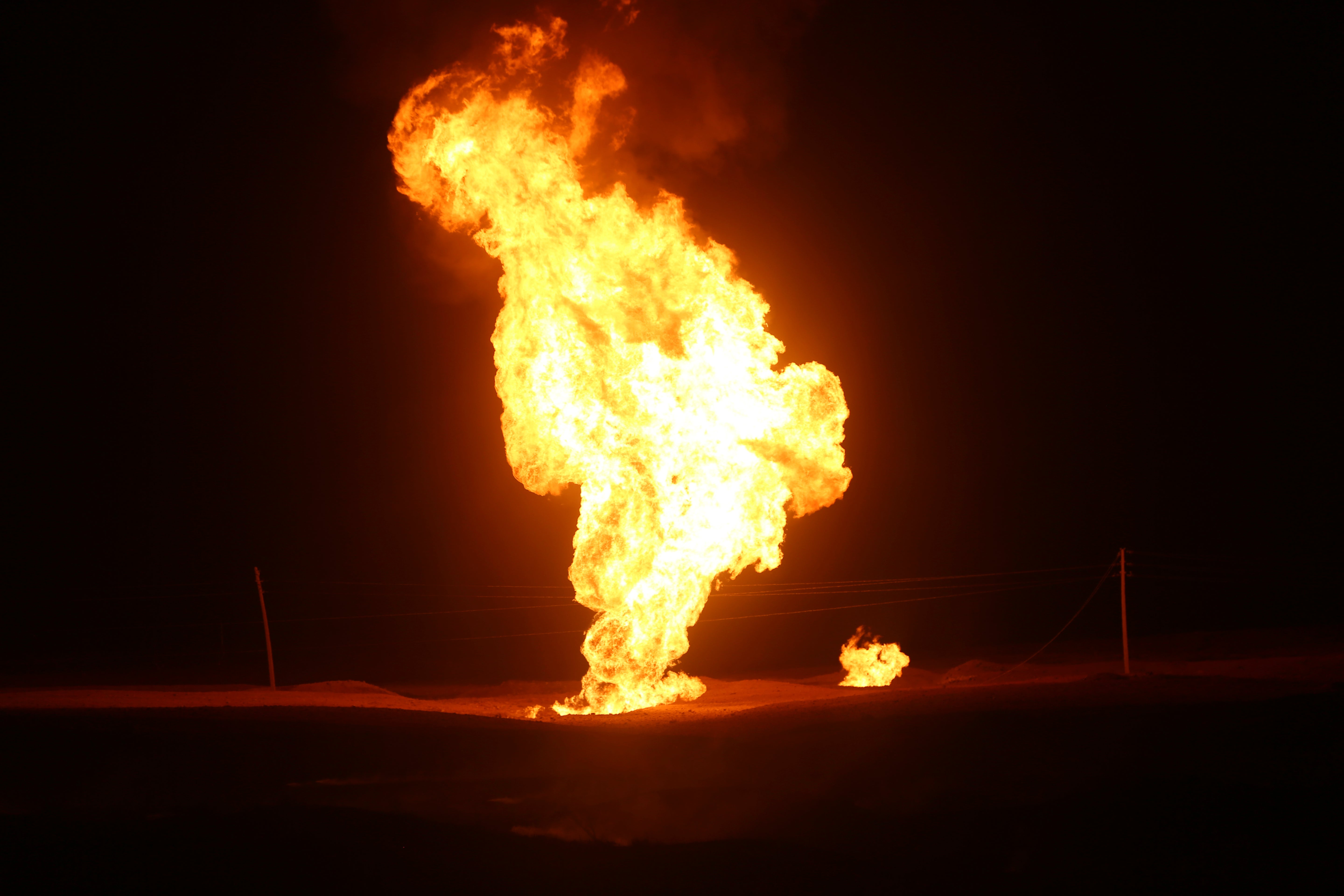Iran claims terrorists blew up gas pipeline
Explosions have struck a natural gas pipeline in Iran

Explosions struck a natural gas pipeline in Iran on Wednesday, with an official blaming the blasts on a “sabotage and terrorist action”.
Details were scarce, though the blasts hit a natural gas pipeline running from Iran's western Chaharmahal and Bakhtiari province up north to cities on the Caspian Sea. The roughly 1,270-kilometer (790-mile) pipeline begins in Asaluyeh, a hub for Iran's offshore South Pars gas field.
The news comes in the country as tensions remain high in the Middle East amid Israel‘s war on Hamas in the Gaza Strip.
Saeed Aghli, the manager of Iran's gas network control center, told Iranian state television that a “sabotage and terrorist” action caused explosions along several areas of the line.
There are no known insurgent groups operating in that province, home to the Bakhtiari, a branch of Iran's Lur ethnic group. Aghli did not name any suspects in the blasts.
Iran's Oil Minister Javad Owji, also speaking to state TV, compared the attack to a series of mysterious and unclaimed assault on gas pipelines in 2011 — including around the anniversary of Iran's 1979 Islamic Revolution. Tehran marked the 45th anniversary of the revolution on Sunday.
“The goal that the enemies were pursuing were to cut the gas in the major provinces of the country and it did not happen,” Owji said. “Except for the number of villages that were near the gas transmission lines, no province suffered a cut.”

In the past, Arab separatists in southwestern Iran have claimed attacks against oil pipelines. However, attacks elsewhere in Iran against such infrastructure are rare.
Since the revolution, Iran has faced low-level separatist unrest from Kurds in the country's northwest, the Baluch in the east and Arabs in the southwest.
However, tensions have risen in recent years as Iran faces an economy hobbled by international sanctions over its nuclear program. The country has faced years of mass demonstrations, most recently in 2022 over the death of Mahsa Amini, a young woman who died in custody after her arrest allegedly over how she wore her mandatory headscarf.
Meanwhile, Israel has carried out attacks in Iran that have predominantly targeted its nuclear program. On Tuesday, the head of the United Nations’ nuclear watchdog warned that Iran is “not entirely transparent” regarding its atomic program, particularly after an official who once led Tehran’s program announced the Islamic Republic has all the pieces for a weapon “in our hands.”
Tensions over Iran's nuclear program comes as groups that Tehran is arming in the region — Lebanon’s militant Hezbollah and Yemen’s Houthi rebels — have launched attacks targeting Israel over the war in Gaza. The Houthis continue to attack commercial shipping in the region, sparking repeated airstrikes from the United States and the United Kingdom.
Bookmark popover
Removed from bookmarks